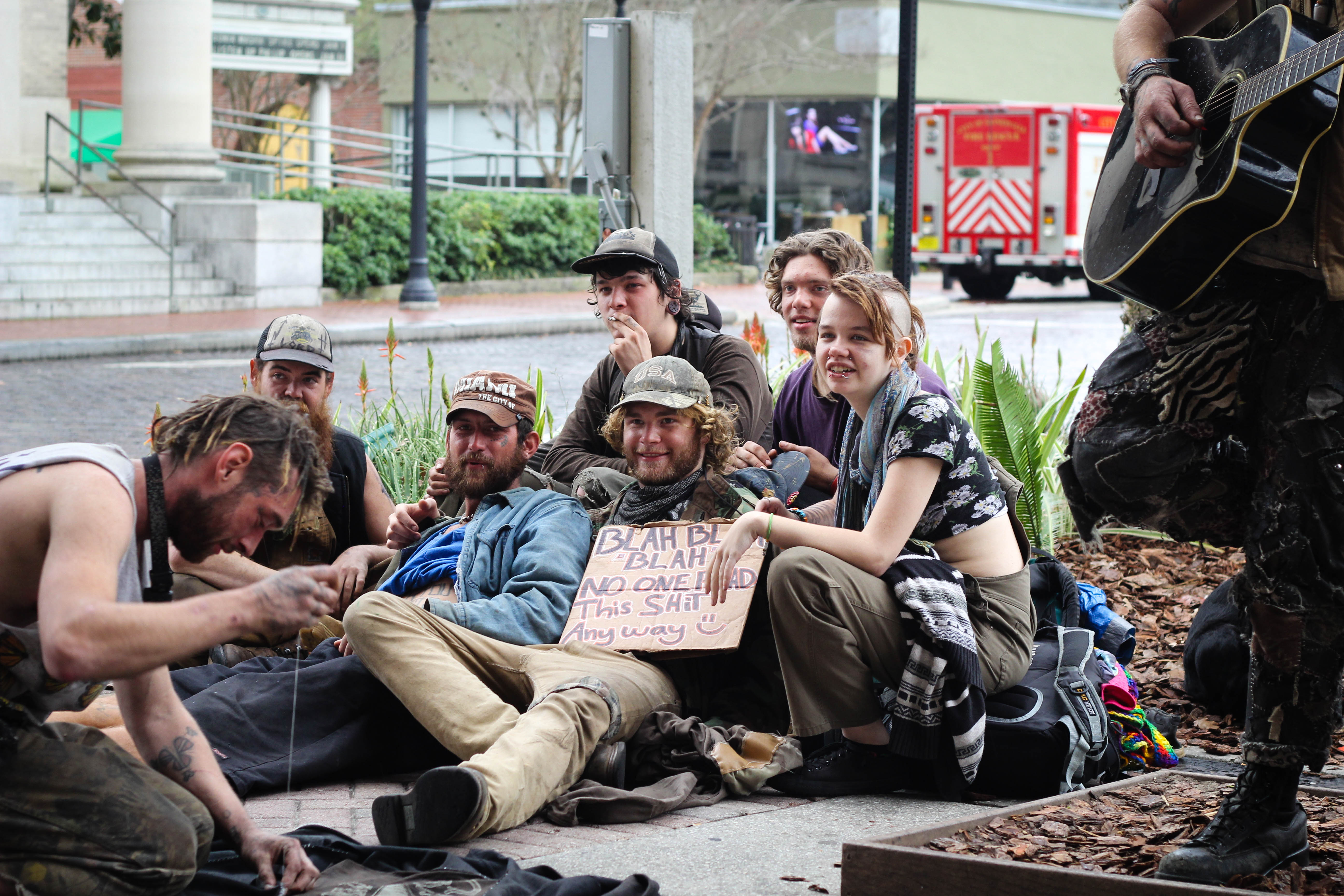Understanding Squatters Rights NYC: What Property Owners Need To Know Today
Property ownership in New York City can be a real adventure, and sometimes, it brings some rather unexpected challenges. One topic that causes a lot of worry for folks is the idea of squatters rights NYC. It's a situation that can feel incredibly unfair and confusing, especially when someone moves into a property you own without permission. People often wonder how someone could possibly claim a right to a place that isn't theirs, and what steps they can take to get their property back.
The stories you hear about people taking over empty homes, or even properties where the owner just stepped away for a bit, are pretty unsettling. It makes you think about what protections property owners truly have here in the Big Apple. So, many people are asking: what exactly are these "squatters rights" in New York City, and how do they impact you?
This article aims to clear up some of that confusion, helping you get a better grip on the rules in New York City. We'll look at what defines a squatter, what legal steps you might need to take, and how you can protect your property from these kinds of situations. It's about getting the facts straight, so you can feel more secure about your valuable assets.
Table of Contents
- What Are Squatters Rights in NYC, Really?
- The NYC Landscape for Property Owners
- Steps to Take if You Find Squatters in Your NYC Property
- Preventing Squatters: Proactive Measures for NYC Property Owners
- Frequently Asked Questions About Squatters Rights NYC
What Are Squatters Rights in NYC, Really?
When people talk about squatters rights NYC, they are usually referring to a legal idea called "adverse possession." This concept allows someone to gain ownership of another person's property, but only under very specific and strict conditions. It's not something that happens overnight, or just because someone decided to move in.
The Legal Foundation: Adverse Possession (NYC Specific)
In New York, for someone to claim a property through adverse possession, they need to meet several requirements. This includes occupying the property openly, continuously, and without the owner's permission for a specific period. That period, in New York, is ten years. So, it's not like the thirty days some places, like Florida, might have for certain situations. It's a much longer stretch of time, and the person occupying the property must also show they have a reasonable belief that they own the property or that they are holding it against the true owner's wishes. They also need to pay property taxes on the property during this entire ten-year period, which is a big hurdle for most squatters.
This is a major difference from what you might hear about in other places. For example, in New Jersey, it takes thirty years of continuous occupation for a squatter to claim a residential property. In British Columbia, or even Western Australia, the laws are quite different too, often prioritizing the property owner's rights more directly. New York's ten-year rule with the tax payment requirement is quite particular, you know.
Squatter vs. Tenant: A Key Distinction
It's very important to tell the difference between a squatter and a tenant. A tenant has a legal right to be on your property because you, the owner, gave them permission, usually through a lease agreement. They pay rent, and they have certain protections under landlord-tenant laws. A squatter, on the other hand, does not have that permission. They are on your property without any legal right or agreement, so it's a completely different situation.
This distinction is critical because the process for removing a squatter is different from evicting a tenant. If you have tenants you've served with a written eviction notice, like a 3-day notice for non-payment, and they don't comply, you would file with the courts for an eviction. With squatters, the initial steps can be different, but it often still leads to court action, as a matter of fact.
The NYC Landscape for Property Owners
New York City's housing laws are, in a way, very complex. This complexity can make it a bit tricky for property owners when dealing with unauthorized occupants. The city tries to protect people from homelessness, which sometimes creates situations where squatters gain certain rights quite quickly, even if they didn't start with any permission.
When Does Someone Become a Squatter?
Someone becomes a squatter the moment they occupy your property without your permission. This could happen if a property is vacant, if you're away on vacation, or if a former tenant overstays their welcome without a new agreement. The key element is the lack of permission. However, the longer they stay, the more complicated it can become to remove them. After a certain period, which can be as short as 30 days of continuous, open, and hostile occupation, a squatter in New York City might be considered to have some tenant-like rights, making it harder to simply remove them without formal court proceedings.
So, if squatters have moved into your home while you were on vacation, getting them out quickly still requires following a legal path. You can't just change the locks or force them out, even though it feels like you should be able to. The law protects occupants, even those who initially entered without permission, from self-help evictions. This means you can't use force or intimidation, or take actions that might be seen as trying to make them leave without a court order, you know.
The Challenges of Removing Someone
Removing squatters in NYC often means going through the court system, much like an eviction process. This can be time-consuming and, frankly, rather expensive. You can file a civil action against the squatters to make them leave, and potentially pay you for damages they caused or for the time they occupied your property. Depending on the circumstances, you will either need to bring an eviction proceeding in Housing Court or a different type of civil action in Supreme Court. This is because New York law generally requires a court order to remove anyone who has established residency, even if that residency was initially unlawful. It's a system designed to prevent people from being put out on the street without due process, which, while good in principle, can be tough for property owners.
There are rumors that squatters don't even have to prove anything, but that's not how it works in New York. The burden of proof is actually quite high for someone trying to claim adverse possession. However, for simply *removing* them, the owner still has to go through the proper legal channels, which means proving they are the owner and that the occupant has no right to be there. This can be a very frustrating experience for property owners, as a matter of fact.
Can You Shut Off Utilities?
This is a common question, and it's a very important one. Can you shut off utilities in your name on squatters? In New York City, the answer is a pretty strong "no." Even if someone is a squatter and has no legal right to be in your property, cutting off their utilities—like electricity, heat, or water—is generally considered an illegal eviction tactic. This applies even if the utilities are in your name. Doing so could lead to legal penalties against you, including fines and damages. It's seen as a form of self-help eviction, which is prohibited. So, while it might seem like a simple solution, it's actually something that could get you into more trouble than it solves, frankly.
Steps to Take if You Find Squatters in Your NYC Property
If you discover squatters on your property, it's natural to feel a bit overwhelmed. However, taking the right steps from the very beginning can make a big difference in how quickly and smoothly the situation gets resolved. Remember, the goal is to regain possession of your property legally and effectively.
Act Quickly, But Legally
The moment you realize someone is occupying your property without permission, it's important to act fast. The longer a squatter stays, the more rights they might gain under New York law. However, "acting quickly" does not mean taking matters into your own hands. You should not attempt to remove them by force, change locks while they are inside, or remove their belongings. These actions could lead to legal problems for you, including criminal charges for illegal eviction or harassment. Your first step should be to contact law enforcement to report a trespass, but be aware that police often consider these civil matters once someone has established residency, so they might not remove them directly.
Gathering Proof and Documentation
To prepare for any legal action, you need to collect as much evidence as you can. This includes proof of your ownership of the property, like deeds and property tax records. You should also gather evidence that shows the occupants are indeed squatters and not tenants. This might involve taking dated photos or videos of the property's condition, documenting any damage, and keeping records of any attempts you made to secure the property. Any communication you have with the squatters, or attempts they made to establish residency, should also be noted. This documentation will be vital when you present your case in court, as a matter of fact.
The Eviction Process in NYC (Even for Squatters)
Because squatters in New York City can quickly gain tenant-like rights, you will often need to go through a formal eviction process, even though they are not tenants. This typically starts with serving them with a notice to quit, which is a formal document stating that they must leave the property. If they do not leave by the specified date, you will then need to file a holdover petition in Housing Court. This is where you formally ask the court to order their removal. The court process involves hearings, where both sides can present their case. If the court rules in your favor, it will issue a warrant of eviction, which allows a city marshal to physically remove the squatters. This process can be quite drawn out, and it's almost never as simple as just telling them to leave, you know.
Considering Legal Help
Given the complexities of New York City's housing laws, it is strongly recommended that you seek advice from a lawyer who specializes in landlord-tenant law or real estate. A lawyer can help you understand your rights, guide you through the correct legal procedures, and represent you in court. They can help you determine if you need to bring an eviction proceeding or a different civil action, and they can help you avoid costly mistakes that could prolong the situation or lead to legal trouble for you. While the idea of avoiding costly legal fees is appealing, trying to handle a squatter situation without proper legal guidance can often end up being more expensive and frustrating in the long run. Learn more about property law on our site.
Preventing Squatters: Proactive Measures for NYC Property Owners
The best way to deal with squatters is to prevent them from moving in at all. Taking proactive steps to secure your property and stay on top of its condition can save you a lot of trouble and expense down the road. These measures are especially important for vacant properties or those you don't visit regularly, you know.
Regular Property Checks
If you own a property that is vacant or that you do not live in, make sure to check on it regularly. This means visiting the property in person, or having a trusted friend, family member, or property manager do so. Frequent visits can help you spot any signs of unauthorized entry early on, before someone has a chance to establish a long-term presence. Early detection is key to a quicker resolution, as a matter of fact.
Securing Vacant Properties
Make sure your property is as secure as possible. This includes having strong locks on all doors and windows, and making sure there are no easy entry points. Consider boarding up windows or installing security systems if the property will be vacant for an extended period. Clear signage indicating that the property is private and under surveillance can also act as a deterrent. The idea is to make it very difficult for someone to enter without permission and to make it clear that the property is actively being managed, very.
Clear Agreements for Occupancy
If you allow anyone to stay on your property, even temporarily, always have a written agreement. This includes friends, family members, or even people doing work on the property. A clear agreement, even a simple one, can define the terms of their stay, when they are expected to leave, and that they are not establishing residency. This helps prevent situations where someone claims they had permission to stay and then refuses to leave. It's a simple step that can protect your rights as a property owner, very much so. You can also learn more about real estate law to protect your investments.
Frequently Asked Questions About Squatters Rights NYC
Here are some common questions people ask about squatters rights in New York City:
1. How long does a squatter have to stay in NYC to claim rights?
In New York City, a squatter generally needs to occupy a property openly, continuously, and without the owner's permission for at least ten years to claim ownership through adverse possession. They also need to pay property taxes during this entire period. However, they can gain tenant-like rights, making them harder to remove, after a much shorter period, sometimes as little as 30 days of continuous occupation.
2. Can I call the police to remove a squatter in NYC?
You can certainly call the police to report a trespass. However, if the squatter has established any form of residency, even for a short time, the police may consider it a civil matter rather than a criminal one. In such cases, they will often advise you to pursue a formal eviction process through the courts, as they cannot legally remove someone who claims to be a resident without a court order.
3. What's the difference between a squatter and a holdover tenant in NYC?
A squatter is someone who occupies your property without any initial permission. A holdover tenant, on the other hand, is someone who initially had permission to be on your property (like a lease agreement) but has stayed beyond the terms of that agreement, for instance, after their lease expired. While both need to be removed through legal means, the specific legal procedures can differ slightly. For example, a holdover tenant typically receives a notice to quit before an eviction filing.

Squatters along the railway tracks in Manila, Philippines Stock Photo

What Is A Squatter

Squatters in manila philippines hi-res stock photography and images - Alamy